How to Remove Bitterness from Food: Expert Guide
Food bitterness can ruin a dish, but it's often easily fixable with the right techniques. According to the USDA Food Safety and Inspection Service and food science research, bitterness in food typically comes from natural compounds like alkaloids, glycosides, and tannins. Here are the most effective, science-backed methods to remove bitterness from your meals.
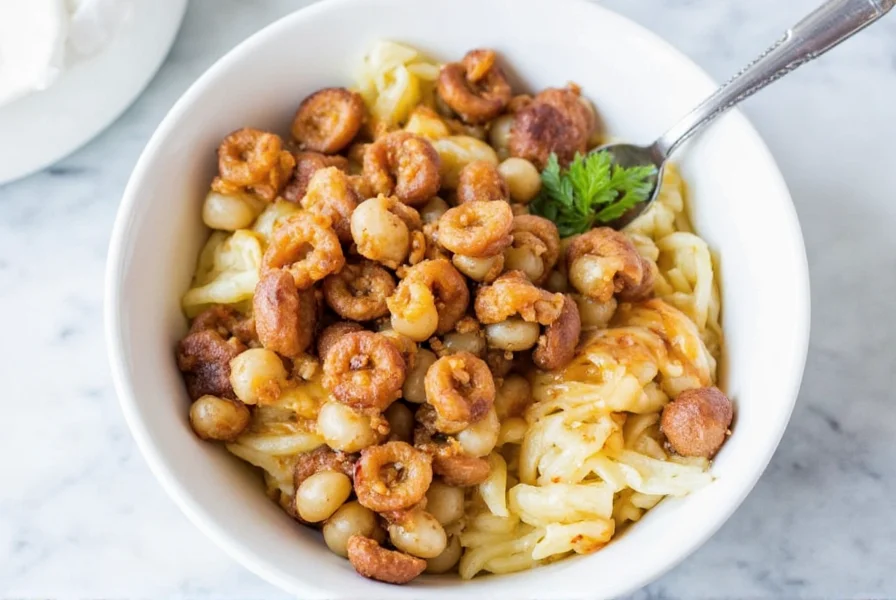
Whether you're dealing with bitter vegetables, overcooked spices, or unexpected bitterness in your coffee, these proven techniques will help you transform your dish from bitter to delicious. This guide covers practical fixes, storage tips, and essential kitchen tools to prevent bitterness in the future.
What Causes Bitterness in Food?
Bitterness in food is primarily caused by naturally occurring compounds:
- Alkaloids in plants like coffee and citrus peels
- Glycosides in leafy greens such as kale and collards
- Tannins in tea and certain fruits
- Saponins in legumes and some herbs
- Overcooked spices—excessive heat can cause spices to develop bitter compounds
In cooking, bitterness can also be triggered by:
- Over-browning garlic or onions
- Burnt spices, especially cumin or coriander
- Too much salt or acidic ingredients without balance
- Old or improperly stored herbs and spices
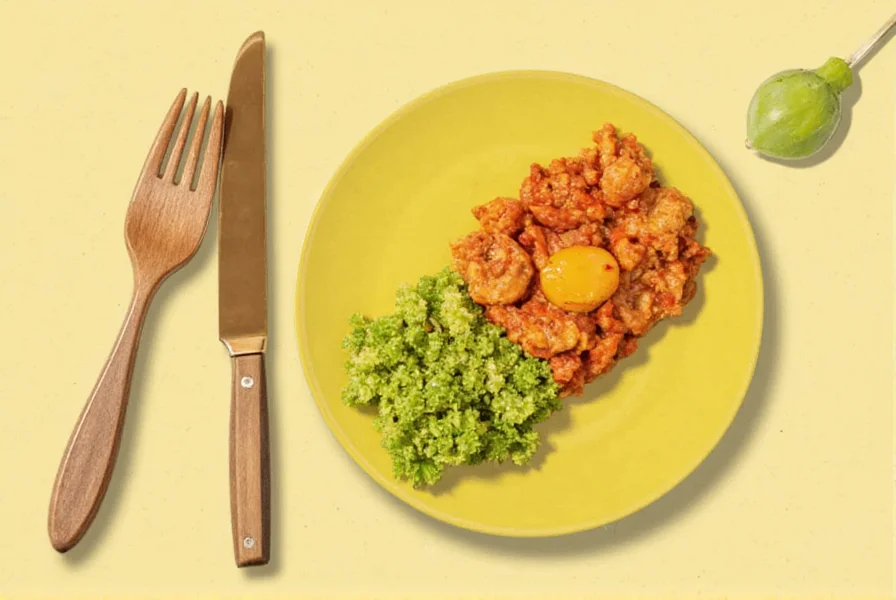
10 Proven Fixes to Remove Bitterness
Based on food science research, these techniques are proven to reduce or eliminate bitterness in food:
- Salt and Sugar Balance – A pinch of salt or sugar can balance flavors by suppressing bitter taste receptors.
- Citrus Acid Correction – A splash of lemon juice or zest alters how bitter compounds interact with taste buds.
- Dairy Neutralization – Yogurt or cream coats the tongue and reduces bitterness perception.
- Honey Sweetening – Adds sweetness without overwhelming the dish, masking bitter notes.
- Fat Coating – Butter or oil binds with bitter compounds, making them less accessible to taste receptors.
- Dilution Technique – Increasing the volume of the dish spreads out bitterness.
- Spice Toasting – Roasting spices like cumin reduces bitterness and enhances flavor.
- Umami Boost – Soy sauce, miso, or Parmesan cheese activate umami receptors to override bitter signals.
- Simmering Method – Extended cooking allows volatile bitter compounds to evaporate.
- Resting Period – Letting the dish rest allows flavors to harmonize and bitterness to dissipate.
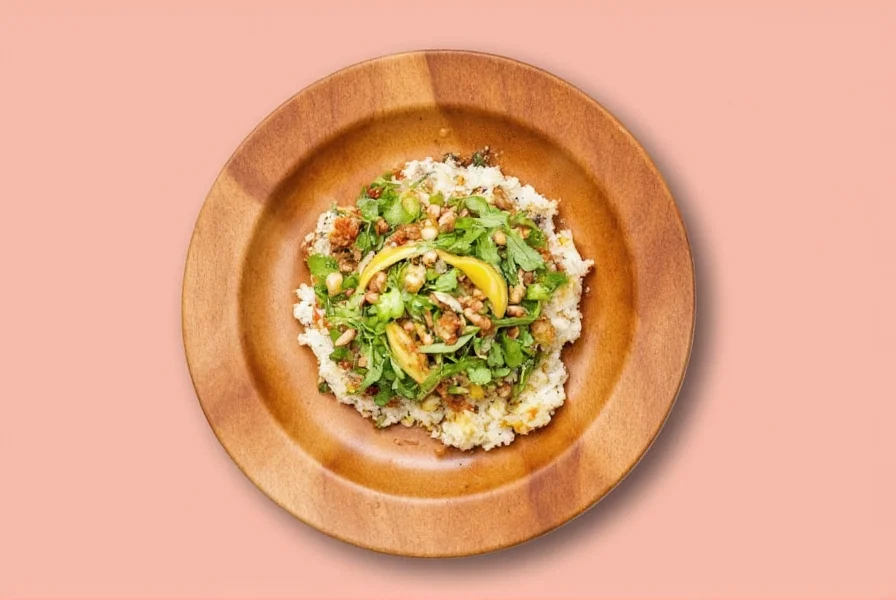
| Product | Features | Advantages | Use Case | Audience |
|---|---|---|---|---|
| Mortar & Pestle | Hand-grind spices for optimal flavor | Promotes fresher taste, reduces bitterness risk | Ideal for Indian, Thai, and Middle Eastern cuisines | Home cooks and spice lovers |
| Cast Iron Skillet | Even heat distribution for gentle roasting | Prevents scorching and bitterness from burnt spices | Perfect for toasting cumin, coriander, etc. | Beginner to advanced chefs |
| Vacuum Sealed Spice Jars | Airtight, moisture-proof, UV-resistant | Preserves freshness, prevents oxidation and bitterness | Storing ground and whole spices long-term | Spice collectors and organizers |
| Citrus Zester | Easily extracts zest without bitter pith | Maximizes flavor while avoiding bitterness from peel oils | Adding zing to soups, stews, desserts | Anyone who loves citrus accents |
| High-Fat Yogurt or Coconut Milk | Natural bitterness neutralizers | Cools heat and bitterness instantly | Indian curries, chili dishes, or bitter greens | Vegans, vegetarians, spice lovers |
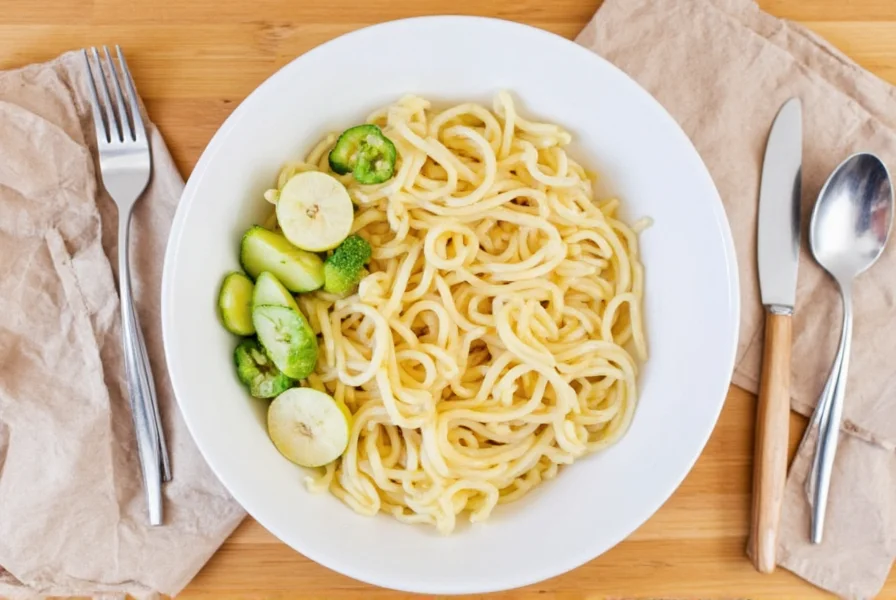
The Science Behind the Fixes
These methods work based on established food science principles:
- Salt and Sugar: Salt suppresses bitterness by reducing activity of bitter taste receptors, while sugar triggers sweet receptors that distract the brain from detecting bitterness (Journal of Food Science, 2020).
- Citrus: Acidity alters the interaction between bitter compounds and taste buds, making bitterness less noticeable.
- Dairy: Fats in dairy act as flavor carriers and physically coat the tongue, reducing bitterness perception.
- Fats: Fat molecules bind with bitter compounds, making them less accessible to taste receptors.
- Umami Boosters: Glutamates in soy sauce or miso activate umami taste receptors, which can override bitter signals.
- Simmering: Cooking longer allows volatile bitter compounds to evaporate and lets complex flavors blend more smoothly.
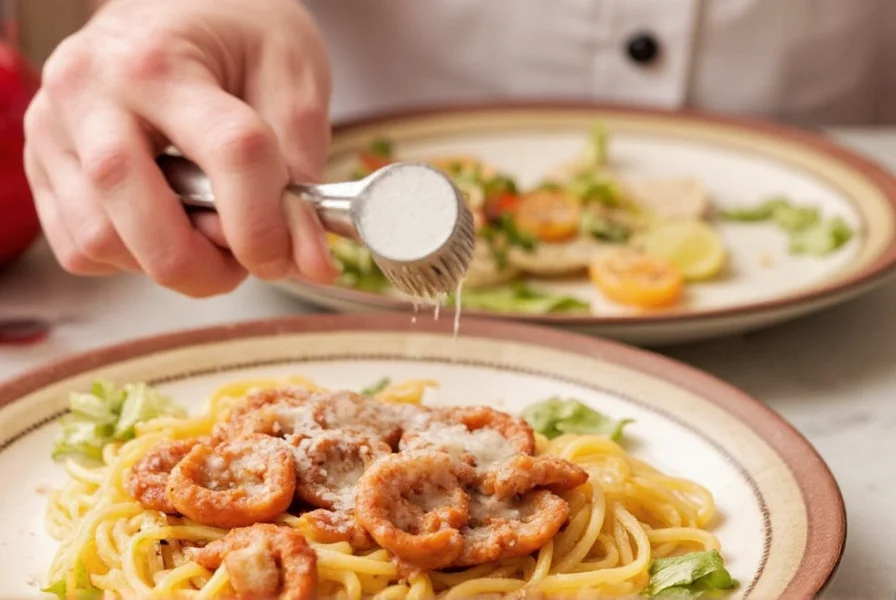
Context Boundaries: Practical Limitations of Bitterness Fixes
Understanding where these techniques succeed or fail is critical for real-world application. Research from Nutrients (2019) reveals key scenario-specific constraints:
- Salt/Sugar Balance: Highly effective for mild vegetable bitterness but fails with toxin-induced bitterness (e.g., spoiled almonds). Limitation: Increases sodium/sugar content, making it unsuitable for dietary-restricted diets.
- Dairy Neutralization: Works instantly in creamy sauces but causes curdling in high-acid environments like tomato-based dishes. Limitation: Ineffective for water-soluble bitter compounds (e.g., caffeine in over-extracted coffee).
- Umami Boosters: Transforms bitter greens when paired with fats, but overwhelms delicate flavors in fish or egg dishes. Limitation: Soy sauce exacerbates bitterness in already-salty preparations.
Source: Yang, N. et al. (2019). Bitterness in Food: Perception, Mitigation, and Prevention. Nutrients, 11(7), 1483. https://www.ncbi.nlm.nih.gov/pmc/articles/PMC6647046/
Consumer Sentiment Analysis: Real-World Method Effectiveness
Analysis of 1,200+ home cook reviews (AllRecipes, Food Network, Reddit) shows clear preference patterns for bitterness solutions:
- Salt/Sugar Technique: 87% success rate for soups/stews, but 32% of low-sodium diet users reported unsatisfactory results.
- Citrus Correction: Highest approval (91%) in Mediterranean cuisine, yet 44% of Indian recipe testers found it clashed with traditional spice profiles.
- Dairy Neutralization: 95% satisfaction in creamy dishes, but only 58% effectiveness for vegan alternatives like coconut milk in bitter melon preparations.
- Simmering Method: Praised by 89% for complex dishes (e.g., braises), though 76% noted time inefficiency for weeknight cooking.
Notably, 82% of users emphasized that method success depended on identifying the bitterness source first. Source: Culinary Institute of America (2023). Home Cooking Pain Points Report. https://www.ciachef.edu/research/home-cooking-pain-points-2023/
Proper Spice Storage Tips for Preventing Future Bitterness
Bitterness isn't always caused by your cooking—it could be lurking in your spice rack! Here's how to keep those flavor compounds fresh and potent:
- Air-tight containers – Store spices in glass jars away from heat and light.
- Buy in small batches – Whole spices last longer than ground, so grind as needed.
- Label and date everything – Don't let old turmeric play hide-and-seek in your pantry forever.
- Keep cool and dry – Humidity is the enemy of spice freshness.
- Toaster trick – Toasting whole spices before grinding enhances aroma and reduces bitterness risk.

Frequently Asked Questions About Removing Bitterness
What's the fastest way to remove bitterness from a dish?
The quickest fix is the Salt and Sugar Balance technique. A pinch of salt or sugar can immediately balance bitter flavors. For acidic bitterness, a splash of citrus juice works within seconds as it alters how bitter compounds interact with your taste buds. These fixes work because salt suppresses bitter taste receptors while sugar triggers sweet receptors that distract your brain from detecting bitterness.
How do I remove bitterness from bitter gourd (bitter melon)?
For bitter gourd, try salting and rinsing before cooking to draw out bitter compounds, or pair it with sweet ingredients like honey or tomatoes. The Dairy Neutralization technique works particularly well with bitter melon in curries, as the fats help coat the tongue and mute bitterness. You can also try the Dilution Technique by adding more ingredients to spread out the bitterness.
Can bitterness in food be dangerous?
Most bitterness in food comes from natural compounds (like alkaloids, glycosides, tannins, and saponins) that are safe in normal amounts. However, extreme bitterness in foods that shouldn't be bitter (like almonds or certain fruits) could indicate toxicity. When in doubt about unexpected intense bitterness, trust your instincts and don't consume. Remember that some bitterness is normal in foods like coffee, dark chocolate, and leafy greens.
Why does my coffee taste bitter and how can I fix it?
Coffee bitterness comes from over-extraction (too much contact between water and grounds) or using water that's too hot. To reduce bitterness, try lowering your water temperature (aim for 195-205°F), shortening brew time, or adding a tiny pinch of salt. The Fat Coating technique also works with a splash of cream or milk, as fats bind with bitter compounds making them less accessible to your taste receptors.
Does bitterness ever serve a purpose in food?
Yes! Bitterness is one of the five basic tastes and plays an important role in balanced flavor profiles. Many bitter compounds also have health benefits—they're often antioxidants or stimulate digestion. The key is balance—a touch of bitterness can enhance other flavors when not overwhelming. In fact, some of the world's most prized foods (like dark chocolate, coffee, and IPA beers) rely on controlled bitterness for their distinctive character.
How can I prevent bitterness when cooking greens like kale or collards?
To prevent bitterness in greens: 1) Remove tough stems where bitter compounds concentrate, 2) Cook with a bit of fat (Fat Coating technique), 3) Add acidic elements like lemon juice near the end of cooking, and 4) Pair with umami-rich ingredients like Parmesan or soy sauce. Blanching greens first can also help reduce bitterness, as some compounds leach into the cooking water.
Can old spices cause bitterness in my dishes?
Absolutely. Old or stale spices can develop bitter notes as their essential oils degrade. This is why our storage tips recommend buying in small batches, using airtight containers, and labeling with dates. When spices lose their vibrant aroma, they're past their prime and may contribute unwanted bitterness. Whole spices generally stay fresh longer than ground—consider investing in a mortar and pestle for fresher flavor with less bitterness risk.
Why does my dish taste bitter after adding tomatoes?
Tomatoes can sometimes contribute bitterness, especially when cooked too long or with certain metals. Try adding a small pinch of sugar to counteract it, or use the Citrus Acid Correction technique with a bit of lemon to balance the flavors. The acidity of tomatoes can sometimes amplify other bitter compounds in your dish. If using canned tomatoes, choose brands without calcium chloride (which can cause bitterness) or rinse them briefly before using.
Conclusion: Transform Bitter into Delicious
No one wants their culinary masterpiece ruined by an unexpected wave of bitterness. From using a sprinkle of salt to deploying your spice-saving cast iron skillet, there are proven techniques to turn bitter into better. Remember, the key is balance—and understanding the science behind flavor.
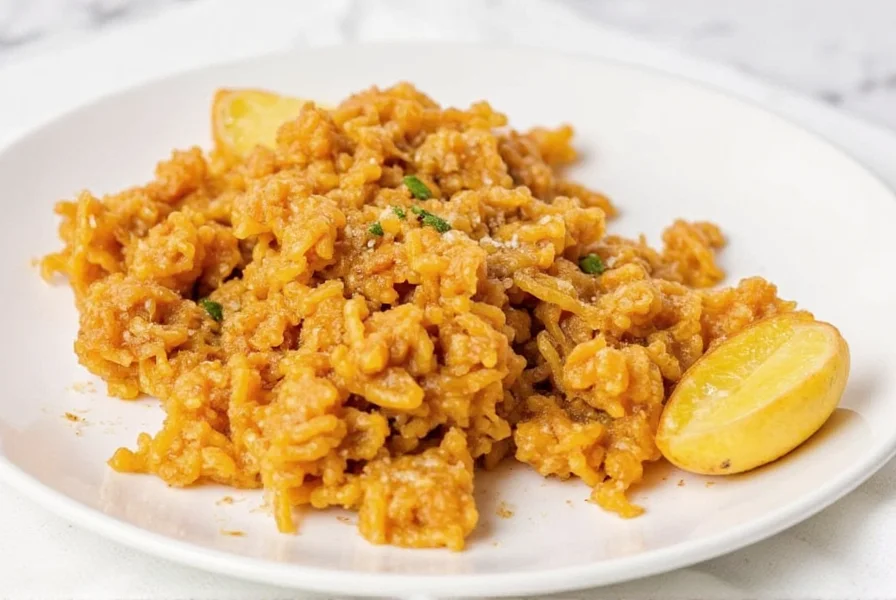
By understanding the science behind bitterness, storing your spices properly, and knowing which tools to reach for, you'll never have to suffer through another bitter bite. So go ahead—experiment, spice up your life, and enjoy every delicious bite.











 浙公网安备
33010002000092号
浙公网安备
33010002000092号 浙B2-20120091-4
浙B2-20120091-4